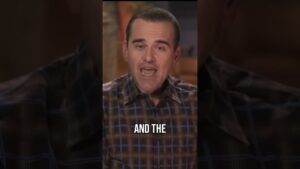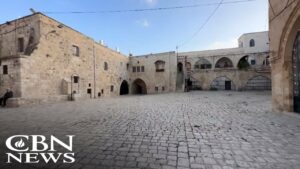Hope to the Rescue
 Project Rescue, founded by David and Beth Grant and now led by their daughter, Jennifer Barratt, is making strides around the world in leading trafficking victims to Christ and to safety.
Project Rescue, founded by David and Beth Grant and now led by their daughter, Jennifer Barratt, is making strides around the world in leading trafficking victims to Christ and to safety.
At age 12, most kids are playing sports, agonizing over homework, and learning to navigate the social mores of junior high school. Jennifer (Grant) Barratt, a 2007 graduate of Evangel University, was watching her parents, David and Beth Grant, begin Project Rescue, an Assemblies of God World Missions ministry dedicated to freeing and restoring victims of sexual exploitation.
“We started in Southern Asia 25 years ago,” Barratt said. “The work started with children of women who were in the red-light districts. The mothers said, ‘Please, take our kids, give them a safe place because if they stay with us, they will be sold like we were.’ Eventually, as the mothers would get free, we could offer them a place to live and reunite them with their children.”
Like many ministries, Project Rescue began not with an elaborate strategy but as an obedient response to the Holy Spirit’s leading.
“When this started, there was no plan. The director of the local Teen Challenge took a team to the red-light district, and led an outreach service,” Barratt explained. “This was not an area where anyone in the church went, but my dad felt like the Lord wanted him to go.”
The team set up some old sound equipment and began sharing the gospel, and the response was astonishing.
“A hundred young women were on the road, and they came over and listened and said, ‘We want to serve this Jesus you’re talking about, but we can’t leave. We’re slaves here, but can you take our daughters to a place of safety?’ Out of that first group, we received 37 little girls,” Barratt said.
Upon learning that the women in the red-light district were enslaved, David began to advocate for victims of trafficking.
“Story after story, we learned that women were sold into lives of sex slavery,” Barratt remembered. “And my dad said, ‘How could we not do something? The Lord has dropped this in our laps.’ I watched it all start as a 12-year-old.”
As the Grants began to strategize for their new ministry, they became aware that sex trafficking was not a problem restricted to Southern Asia; it was worldwide. In response to this international issue, Project Rescue has spread beyond borders and now has a presence in 11 countries across three continents, with new locations in the planning phase.
“In the last two years, we’ve experienced more growth than in the last 23,” she shared. “We feel that there’s momentum happening now that only God can bring about.”
In October 2022, Barratt took the reins of Project Rescue as executive director. Barratt, who graduated from Evangel and Cox College in Springfield, Missouri, with a bachelor’s degree in nursing in 2007, said several aspects of her nursing career equipped her for the position.
“When I was at Evangel and Cox College, and in my nursing experience, I learned how to assess a situation, find out what’s happening, and make a plan,” she said. “That’s a big part of what I do on a very high level in different parts of the world. We go into a country, learn what’s happening, what the needs are, and what our team can do, and we put a plan into action.”
With accelerated international expansion, she shared, comes an increased need for innovation.
“Europe is totally different than Southern Asia,” Barratt said. “In Europe, we’re working with grown women who have been trafficked from around the world, up through Northern Africa or the Ivory Coast. Many of them have been trafficked into Europe thinking they were going to work as a nanny or something else. When they get here and realize what’s going on, they’re stuck without passports or papers, under the control of a pimp.”
In this context, because organized crime is heavily involved, and the level of danger is higher, Project Rescue must sometimes operate in a more covert manner.
“We connect with victims, find them on the street, in the apartments where they’re being sold, or online, and we pose as an organization that comes in to provide free medical care,” Barratt explained. “The traffickers need their girls to stay healthy, so we do HIV testing, stuff like that.”
Though working under the guise of a service organization, Project Rescue actually does provide medical care and other necessities, but the ministry’s workers are also able to make face-to-face connections with victims and offer a means of escape.
“We can ask, ‘Do you want help? Do you want out? We can help you.’ From there, we can take them to safe houses where they can get away from traffickers, go through a program, receive vocational training, and find a new life,” Barratt said.
When the COVID-19 pandemic hit, the lockdown conditions required even greater innovation from the Project Rescue team. This was especially true in Southern Asia, where movement was greatly restricted.
“Our team had the idea that we could provide tablets to give to the children in the red-light district so they could continue their education and have access to kids ministry resources,” Barratt said. “The ladies could also watch church services. Many of them would never have been allowed to attend church, but we brought church to them. So we always have to stay flexible and be creative.”
In addition to liberating victims from physical bondage, Project Rescue’s core mission is to bring spiritual freedom, hope, and restoration through the gospel.
“Our goal is that each woman and child finds a relationship with Jesus. We know that it affects the whole person, and our network clings to verses that describe how God makes us new creations,” Barratt shared. “Despite what these women have been through and the trauma and shame that’s associated with sex trafficking and slavery, there is hope. There is healing. There is new life.”
Over the 25 years Project Rescue has been in operation, Barratt has seen God work transformative miracles in the lives of many women.
“It has been the greatest privilege to watch the girls meet Jesus,” Barratt said. “He truly restores every part of them. They receive an education, therapy, discipleship, medical care, whatever they need. Then, some go to college or vocational school, start their own businesses, become nurses, doctors, and ministers. That’s happening in multiple locations around the world.”
Barratt enjoys sharing how the Lord uses Project Rescue to help these women find purpose and joy after enduring harrowing trauma.
“God wants them to thrive, to flourish, and He has a great plan for their lives, and they can achieve that,” she shared. “It doesn’t matter what’s happened; He can still bring full healing and restoration. He is making all things new.”
Under Barratt’s leadership, Project Rescue is mobilizing the gospel message in new and innovative ways to free victims of sexual slavery from physical and spiritual chains. Through the network, God is making new creations from broken individuals, one city at a time.
This article originally appeared in Evangel University's Evangel magazine. Used with permission.
“We started in Southern Asia 25 years ago,” Barratt said. “The work started with children of women who were in the red-light districts. The mothers said, ‘Please, take our kids, give them a safe place because if they stay with us, they will be sold like we were.’ Eventually, as the mothers would get free, we could offer them a place to live and reunite them with their children.”
Like many ministries, Project Rescue began not with an elaborate strategy but as an obedient response to the Holy Spirit’s leading.
“When this started, there was no plan. The director of the local Teen Challenge took a team to the red-light district, and led an outreach service,” Barratt explained. “This was not an area where anyone in the church went, but my dad felt like the Lord wanted him to go.”
The team set up some old sound equipment and began sharing the gospel, and the response was astonishing.
“A hundred young women were on the road, and they came over and listened and said, ‘We want to serve this Jesus you’re talking about, but we can’t leave. We’re slaves here, but can you take our daughters to a place of safety?’ Out of that first group, we received 37 little girls,” Barratt said.
Upon learning that the women in the red-light district were enslaved, David began to advocate for victims of trafficking.
“Story after story, we learned that women were sold into lives of sex slavery,” Barratt remembered. “And my dad said, ‘How could we not do something? The Lord has dropped this in our laps.’ I watched it all start as a 12-year-old.”
As the Grants began to strategize for their new ministry, they became aware that sex trafficking was not a problem restricted to Southern Asia; it was worldwide. In response to this international issue, Project Rescue has spread beyond borders and now has a presence in 11 countries across three continents, with new locations in the planning phase.
“In the last two years, we’ve experienced more growth than in the last 23,” she shared. “We feel that there’s momentum happening now that only God can bring about.”
In October 2022, Barratt took the reins of Project Rescue as executive director. Barratt, who graduated from Evangel and Cox College in Springfield, Missouri, with a bachelor’s degree in nursing in 2007, said several aspects of her nursing career equipped her for the position.
“When I was at Evangel and Cox College, and in my nursing experience, I learned how to assess a situation, find out what’s happening, and make a plan,” she said. “That’s a big part of what I do on a very high level in different parts of the world. We go into a country, learn what’s happening, what the needs are, and what our team can do, and we put a plan into action.”
With accelerated international expansion, she shared, comes an increased need for innovation.
“Europe is totally different than Southern Asia,” Barratt said. “In Europe, we’re working with grown women who have been trafficked from around the world, up through Northern Africa or the Ivory Coast. Many of them have been trafficked into Europe thinking they were going to work as a nanny or something else. When they get here and realize what’s going on, they’re stuck without passports or papers, under the control of a pimp.”
In this context, because organized crime is heavily involved, and the level of danger is higher, Project Rescue must sometimes operate in a more covert manner.
“We connect with victims, find them on the street, in the apartments where they’re being sold, or online, and we pose as an organization that comes in to provide free medical care,” Barratt explained. “The traffickers need their girls to stay healthy, so we do HIV testing, stuff like that.”
Though working under the guise of a service organization, Project Rescue actually does provide medical care and other necessities, but the ministry’s workers are also able to make face-to-face connections with victims and offer a means of escape.
“We can ask, ‘Do you want help? Do you want out? We can help you.’ From there, we can take them to safe houses where they can get away from traffickers, go through a program, receive vocational training, and find a new life,” Barratt said.
When the COVID-19 pandemic hit, the lockdown conditions required even greater innovation from the Project Rescue team. This was especially true in Southern Asia, where movement was greatly restricted.
“Our team had the idea that we could provide tablets to give to the children in the red-light district so they could continue their education and have access to kids ministry resources,” Barratt said. “The ladies could also watch church services. Many of them would never have been allowed to attend church, but we brought church to them. So we always have to stay flexible and be creative.”
In addition to liberating victims from physical bondage, Project Rescue’s core mission is to bring spiritual freedom, hope, and restoration through the gospel.
“Our goal is that each woman and child finds a relationship with Jesus. We know that it affects the whole person, and our network clings to verses that describe how God makes us new creations,” Barratt shared. “Despite what these women have been through and the trauma and shame that’s associated with sex trafficking and slavery, there is hope. There is healing. There is new life.”
Over the 25 years Project Rescue has been in operation, Barratt has seen God work transformative miracles in the lives of many women.
“It has been the greatest privilege to watch the girls meet Jesus,” Barratt said. “He truly restores every part of them. They receive an education, therapy, discipleship, medical care, whatever they need. Then, some go to college or vocational school, start their own businesses, become nurses, doctors, and ministers. That’s happening in multiple locations around the world.”
Barratt enjoys sharing how the Lord uses Project Rescue to help these women find purpose and joy after enduring harrowing trauma.
“God wants them to thrive, to flourish, and He has a great plan for their lives, and they can achieve that,” she shared. “It doesn’t matter what’s happened; He can still bring full healing and restoration. He is making all things new.”
Under Barratt’s leadership, Project Rescue is mobilizing the gospel message in new and innovative ways to free victims of sexual slavery from physical and spiritual chains. Through the network, God is making new creations from broken individuals, one city at a time.
This article originally appeared in Evangel University's Evangel magazine. Used with permission.




